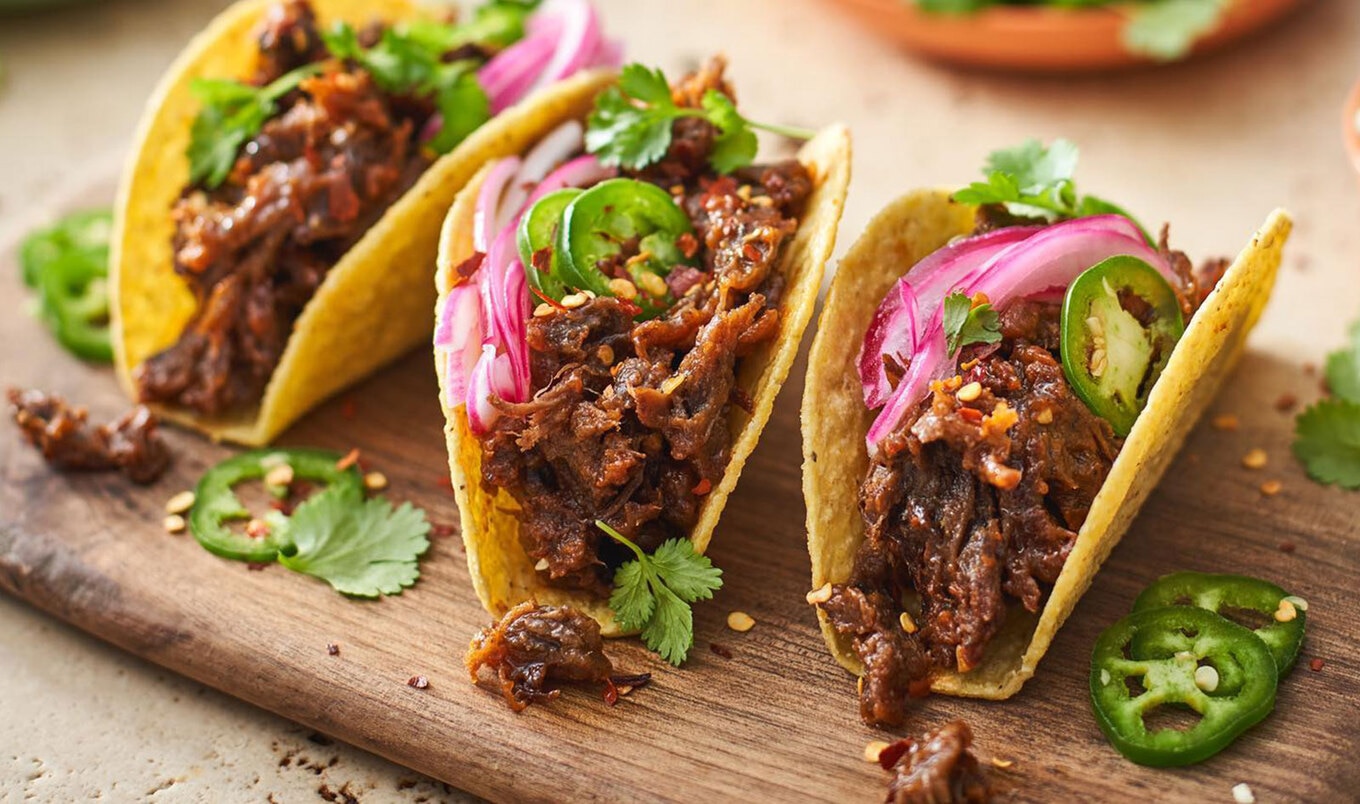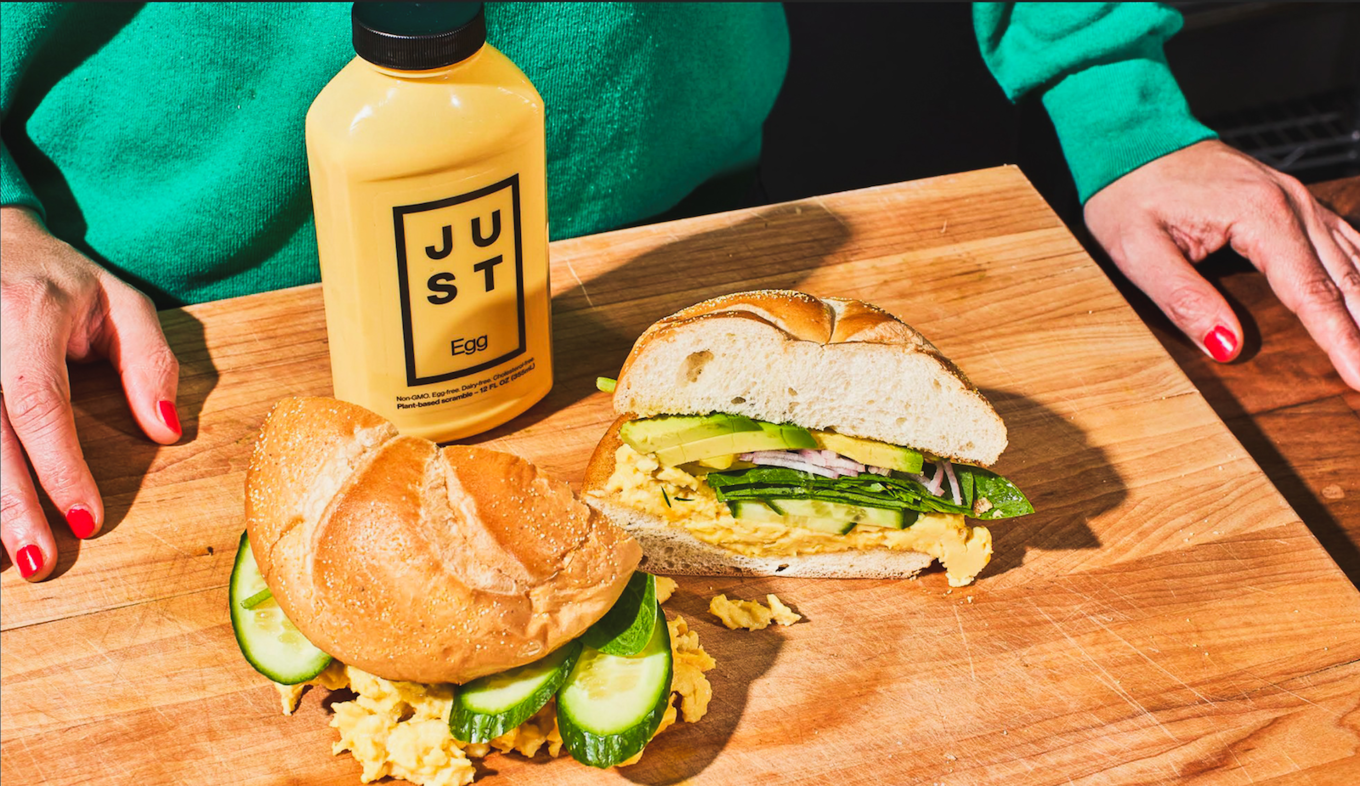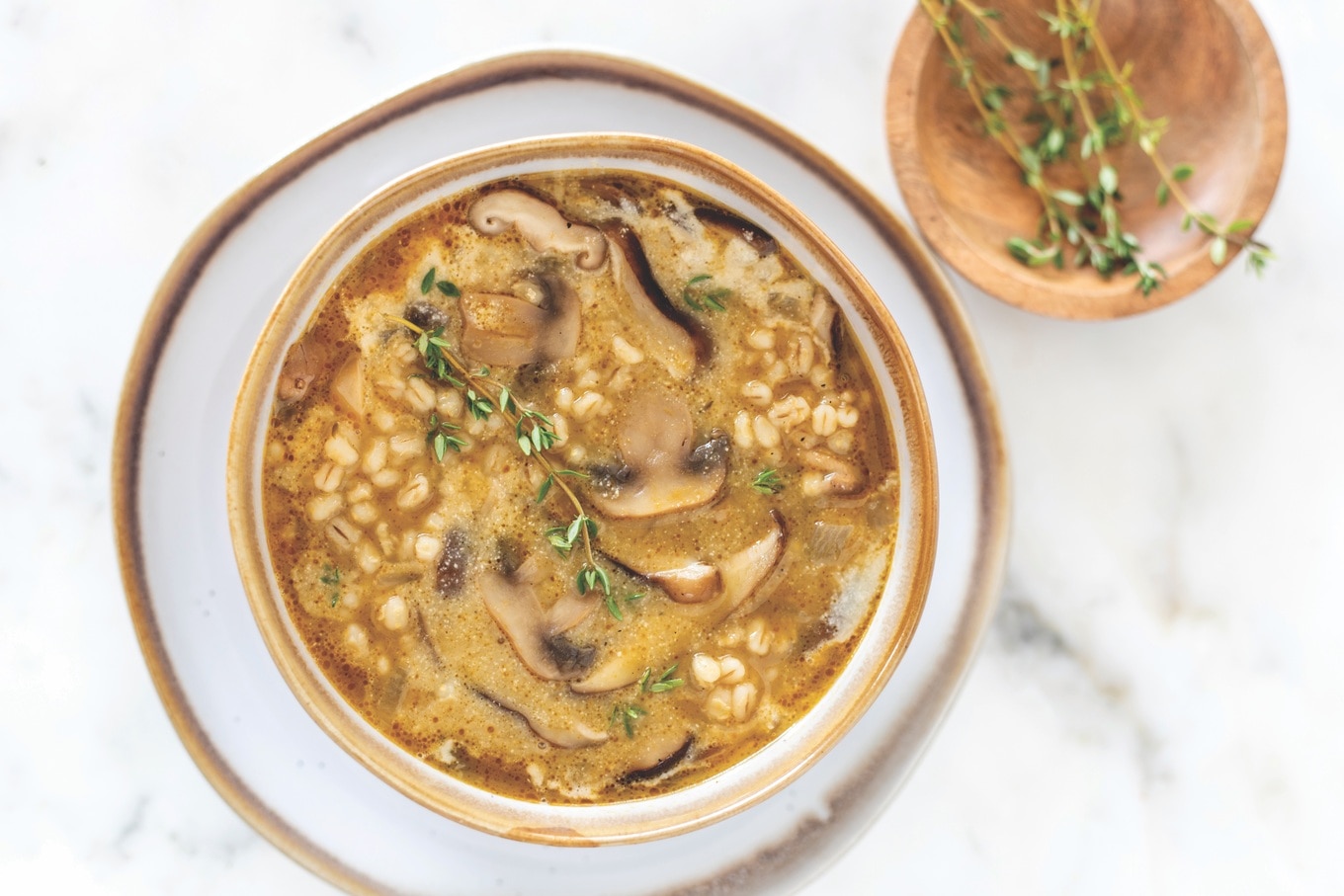This month, the menu at Dave’s Hot Chicken welcomed its first meatless option, following a similar (and very successful test) by Chick-fil-A last spring. Although each option is not vegan due to the inclusion of dairy ingredients, both chains chose cauliflower as their chicken stand-in.
Dave’s Hot Chicken
Along with cauliflower, another vegetable-forward stand-in for animal-based meat gaining mainstream attention is the humble mushroom. Colorado’s Meati Foods—which makes vegan whole-cuts from mycelium, the fast-growing root system of mushrooms—has impressed celebrities such as Derek Jeter, Rachael Ray, Chris Paul, Ali Raisman, and David Chang with its vegan whole-cut meats.
Plus, thanks to the debut of Just Egg, mung beans, another multifunctional food, have been helping plant-eaters make convincing omelets since 2017.
As the conversation around plant-based alternatives to animal products continues its evolution, it’s time to pause and ask: are these foods just convenient substitutes, or do they offer genuine health benefits?
Table of Contents
Cauliflower: more than a chicken substitute
Making buffalo cauliflower wings is a Super Bowl tradition for many. Celebrated for its versatility, cauliflower is much more than a plant-based stand-in for chicken. But is cauliflower really a good swap for chicken?
Noah Praamsma, MS, RDN, from the Physicians Committee for Responsible Medicine, says yes.
“There are so many plant foods that work great as substitutes for meat in familiar dishes,” Praamsma tells VegNews. “Cauliflower can be a great step up from chicken in recipes like sandwiches, soups, rice dishes, or as wings or nuggets.”
Choosing whole, plant-based foods such as cauliflower instead of chicken, he says, is also a good way to avoid unnecessary fat, cholesterol, and even excessive protein—a macronutrient Americans get plenty of.
“Cauliflower is a great source of antioxidants, including sulforaphane which has been found to suppress cancer development, lower blood pressure, and may even reduce the risk of diabetes,” he says.
 Karolina Kolodziejczak/Unsplash
Karolina Kolodziejczak/Unsplash
Another important part of choosing cauliflower instead of chicken is fiber—a macronutrient that is critical in maintaining optimal health but is absent in animal foods.
“You’ll also find that these plant-food substitutions have wildly more fiber, which is a very important nutrient that only 5 percent of Americans eat enough of,” Praamsma tells VegNews.
Mushrooms: a nutrient-dense meat alternative
Plant-based meats were developed to help consumers make an easy switch from eating animals to plants for the benefit of all. However, somewhere along the way, things got murky, with Big Meat pointing public attention to the ingredient lists of certain meat alternatives.
This increased scrutiny of plant-based meat, justified or not, has led to exciting developments in the realm of animal-free proteins.
 Meati
Meati
That’s because mushrooms and their root systems (called “mycelium”) have emerged as a popular meat substitute. Colorado’s Meati Foods grows its vegan steaks, chicken breasts, nuggets, and jerky from mycelium while companies such as Fable Foods minimally process its mushrooms to create pulled pork.
These vegan meats stand at the intersection of sustainability and ethics, and deliver hefty health benefits, as well.
A new report released this month by Meati shows that mycelium is low in total fat, primarily unsaturated, and a source of fiber. On a dry matter basis, the protein content of fungi such as mycelium is about 20 to 30 percent. Additionally, certain commercialized species have a complete essential amino acid profile, positioning mycelium as a viable source of protein, similar in quality to animal-based proteins but with a lower environmental impact.
Praamsma also highlights mushrooms as a source of essential vitamins and minerals, benefiting various body systems.
 Fable Foods
Fable Foods
“Mushrooms also offer benefits specifically for the immune system, gut health, and even dementia prevention,” he says, highlighting compounds such as beta-glucan and an amino acid called ergothioneine.
“Eating mushrooms, whether you’re new to plant-based eating or have been meat-free for years, will only have positive effects on your health,” Praamsma says.
Mung beans: a versatile and nutritious egg alternative
Legumes have served as egg substitutes in home kitchens for eons. Take the humble tofu scramble, a replacement for egg scrambles replacement made from soybeans. These days, egg replacers have become highly sophisticated—capable of delivering the exact texture and flavor of poached eggs with runny yolks.
However, the leading brands are still looking to legumes for their egg-replacing power. Popular brand Just Egg is a prime example as it uses mung beans as the base for its liquid eggs.
 Just Egg
Just Egg
Praamsma says that beans and legumes are a great source of fiber and plant protein while delivering antioxidants, potassium, magnesium, and more. They also function to reduce the risk of chronic disease—the opposite of animal-derived eggs.
“While eggs are high in cholesterol and saturated fat that contribute to chronic diseases, beans can lower blood pressure, reduce the risk of heart disease and stroke, and support a healthy gut,” Praamsma says. “They’re also versatile and do a great job of making you feel full after eating them.”
The vegan protein debate
When it comes to vegan food swaps for animal products, consumers often wonder about getting enough protein—a myth that Praamsma hopes to debunk.
“When people argue for the health benefits of meat (especially chicken), they usually cite its protein, which Americans eat plenty of already,” he says. “Meanwhile, plant foods like cauliflower, mushrooms, and any number of bean varieties offer a symphony of well-balanced compounds, macro- and micronutrients that synergistically make you healthier every time you eat them.”
Americans get approximately 70 to 80 grams per day, which greatly exceeds the 45 to 55 grams of protein most people typically need. “Just like fat and carbohydrates, if you get more protein than you need, your body will store it as fat,” Praamsma says.
Praamsma further addresses common misconceptions about plant-based proteins, clarifying that plant proteins, contrary to popular belief, are not incomplete. “Even though some foods have less of some essential amino acids than others, vegans have been shown to get all the amino acids they need,” he explains.
 Meati Foods
Meati Foods
Plant-based alternatives to animal products such as mushrooms, cauliflower, and legumes, are also rich in complex carbohydrates, provide sustained energy, and are low in fat, aiding in efficient insulin response. Antioxidants in these foods are also beneficial in keeping inflammation at bay and the presence of B vitamins, folate, and selenium, among others, help build a robust immune system.
But can we really get enough protein without eating meat? “As long as a person is eating relatively nutritious foods, even if all of those foods are plants, it would be almost impossible for them to not get enough protein,” Praamsma assures.







